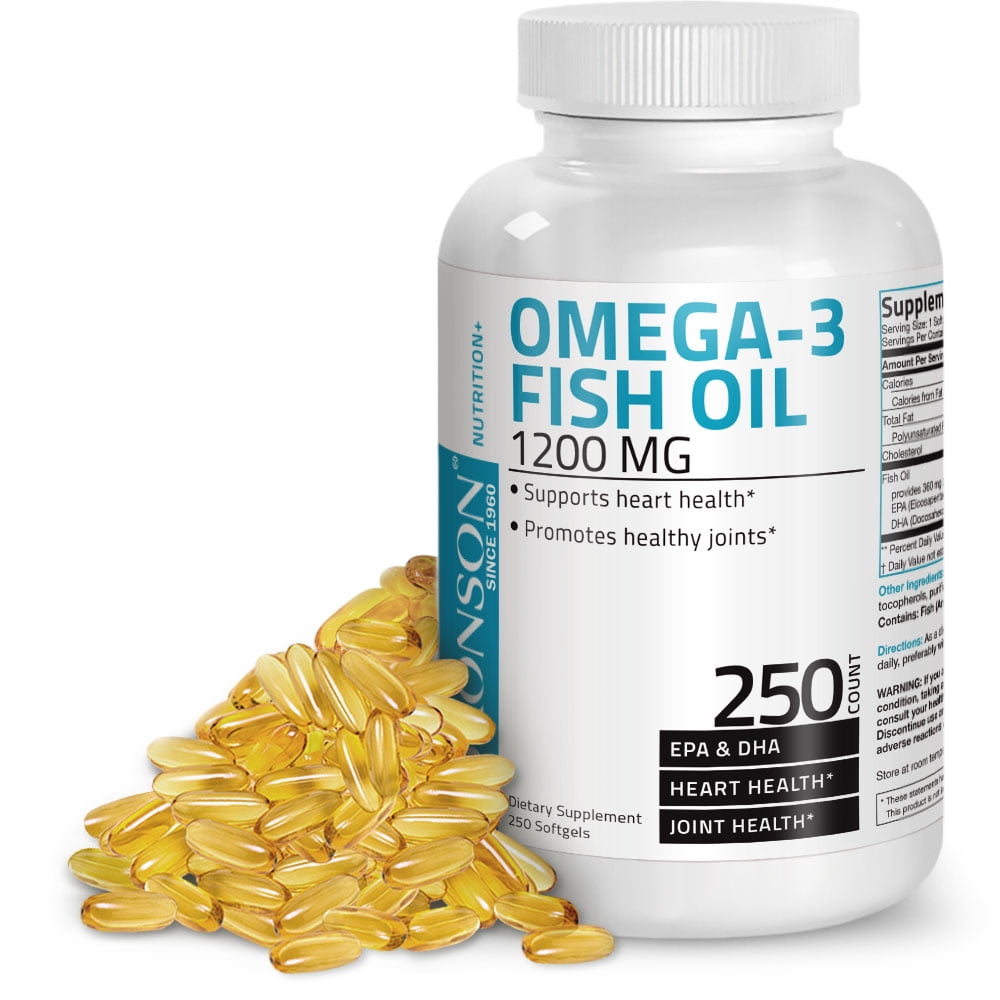
Omega-3 are essential fats, required by the body to survive. Omega-3 is important as it regulates immune function, digestion, muscle activity, and fertility. It is most beneficial for people with heart diseases. Most people include Omega-3 in their diet.
Another essential source of Omega-3 is supplements. It is also proven that a high dosage of omega-3 can help reduce triglyceride levels. Omega-3 supplements also are effective when it comes to rheumatoid arthritis. They contain both DHA and EPA acids which are also present in Omega-3. They prove to be the best form of omega-3 if you are someone who doesn’t eat fish.
WHAT ARE FISH OILS?
They are essential sources of omega-3. These supplements contain EPA and DHA which are the two main acids present in omega-3 fatty acids. Fish oils are extremely helpful when it comes to filling out nutritional gaps.
A few omega-3 fish oil benefits include: maintaining cholesterol, decreasing inflammation, promoting mental health, and balancing joint health. Omega-3 is essential for everyone, especially for people diagnosed with inflammatory disorders. Most people tend to neglect this fact as some don’t like to consume fish at all. This is where fish oils come in handy the most.
TYPES OF FISH OILS

NATURAL FISH OIL
These types of oils are the closest types of omega-3 supplements you can obtain to real fish which is considered the richest source of omega-3. Natural fish oil, along with EPA and DHA, is also rich in vitamins A and D. They are now available in the market in the form of capsules and liquids. The amount of omega-3 present in natural fish oils is 18-31% but can vary depending on the fish species.
PROCESSED FISH OILS
Filled with ethyl esters and triglycerides, processed fish oils are purified or concentrated. These omega-3 supplements make up about 20% of the entire fish-oil market as they are considered cheap. They usually come in capsule form which adds up to their popularity. Concentrating the oil can help in increasing the levels of EPA and DHA from 50-90%. For better absorption of these oils, some manufacturers tend to process them and convert them back into synthetic triglycerides, which is well-absorbed.
KRILL OIL
This oil is obtained from a shrimp-like small fish called krill. It contains both omega-3 in both forms which are triglyceride and phospholipid form. Krill oil contains antioxidant properties, hence this oil is not purified and is rarely present in ethyl ester form.
MUSSEL OIL
Considered to be environment-friendly, green lipid mussel oil is usually available in the form of free fatty acids as well as triglycerides. This omega-3 oil contains ETA (eicosatetraenoic acid) along with DHA and EPA. It is also useful in lowering the inflammation apart from omega-3. Mussel oil contains shellfish and is generally used in New Zealand.
ALGAL OIL
Another species of environmentally-friendly omega-3 supplements, algal oil is a plant-based source of DHA and EPA. This type of oil is essentially used by vegetarians and vegans. Due to the absence of contaminants, it is considered a healthy as well as a sustainable option. Along with this, it is extremely rich in iodine and other minerals. Through research, it is proved that Algal oils contain more omega-3 than normal fish oils.
OTHER ESSENTIAL OILS
Apart from the oils mentioned above, other fish oils are rich in omega-3 as well. These include ALA oil as well as mammalian oil. Ala oils (alpha-linolenic) are another type of oils that are plant-based. They contain omega-6 as well as omega-3. Mammalian oils contain DPA which is docosapentaenoic acid, an omega-3 with multiple benefits.
OMEGA-3 CAPSULES
Omega-3 oils are generally found in the form of capsules. Generally made from a soft layer of gelatin , they are easier to swallow which has increased its popularity among consumers. The gelatin coating prevents the capsules from dissolving before it goes into the stomach.
Omega-3 capsules have a specific rancid smell of a fish so make sure you open up the container from time to time. These omega-3 capsules should be taken along with some kind of meal, be it either breakfast, lunch, or dinner. Consuming it along with a meal that has fat can help in better absorption.
DOSAGE AND RQUIREMENTS WHILE BUYING
When it comes to how much quantity of supplements you can consume daily – the answer is uncertain. The daily dosage differs from person to person and varies according to the reason behind your consumption. For healthy adults, two servings every week is suggested. For people with disorders and heart conditions, a prescription from a doctor is needed. However, exceeding a quantity of 3g is potentially harmful to your health.
When buying an omega-3 supplement there are a few things you need to note down. Firstly make sure that the omega-3 fish oil or capsule is from a reputed, certified brand. Make sure your supplement contains EPA and DHA as it is really important you take in the correct type of omega-3.
Secondly, check the date and other manufacturing details along with the amount of vitamin E it contains. Omega-3 supplements tend to go rancid, often and may even pose a harm to your health, hence it is important to check the details.

CONCLUSION
Omega-3 supplements are the most beneficial sources of omega-3. A normal fish oil supplement is enough for most people. Make sure the supplement contains an adequate amount of EPA and DHA. The only vegetarian options while taking omega-3 supplements are algal oils and ALA oils. It is suggested to take these oils with some form of meal and keep in mind that these oils are perishable. Buying omega-3 supplements in bulk is not considered a good option.

